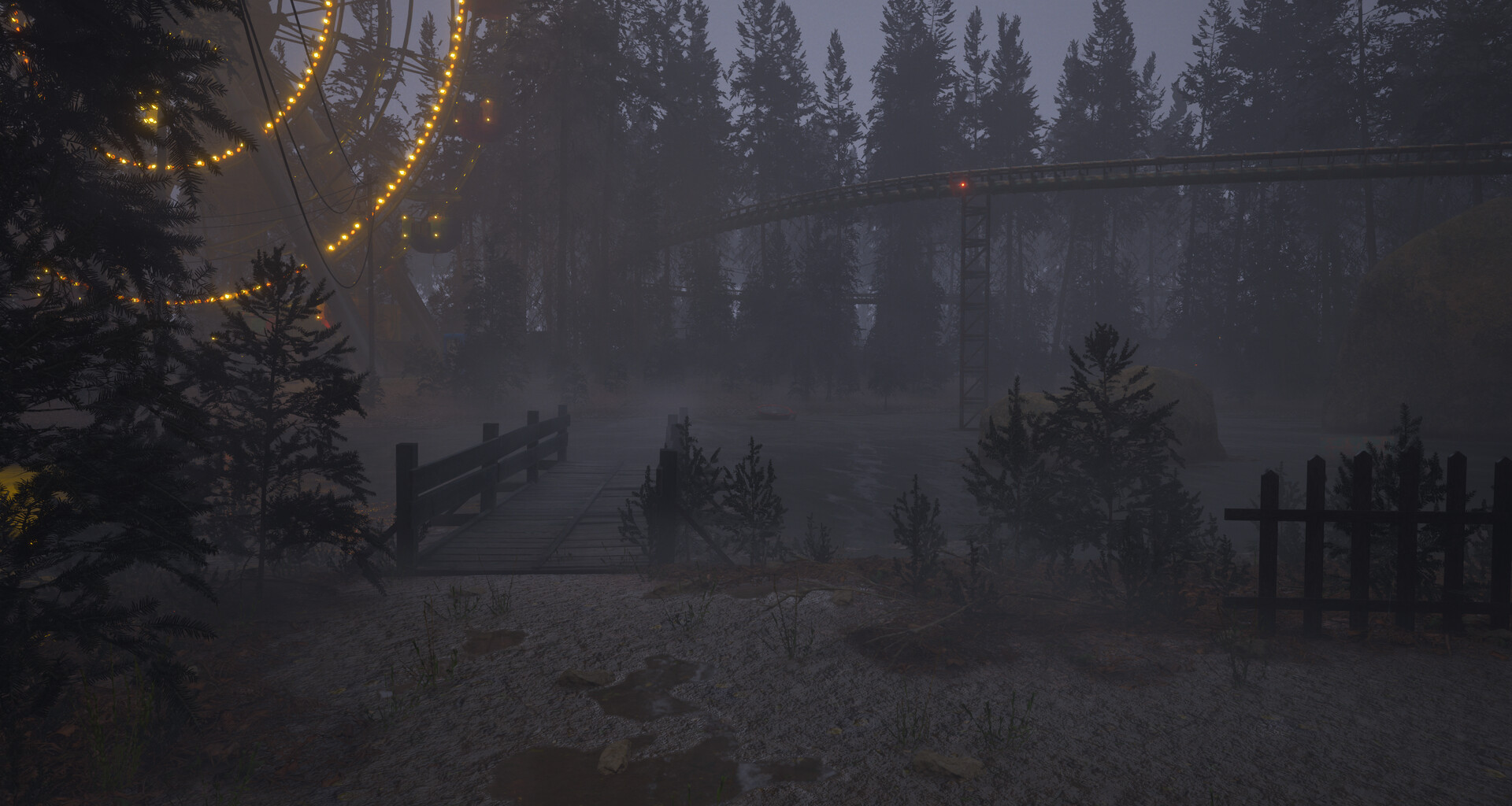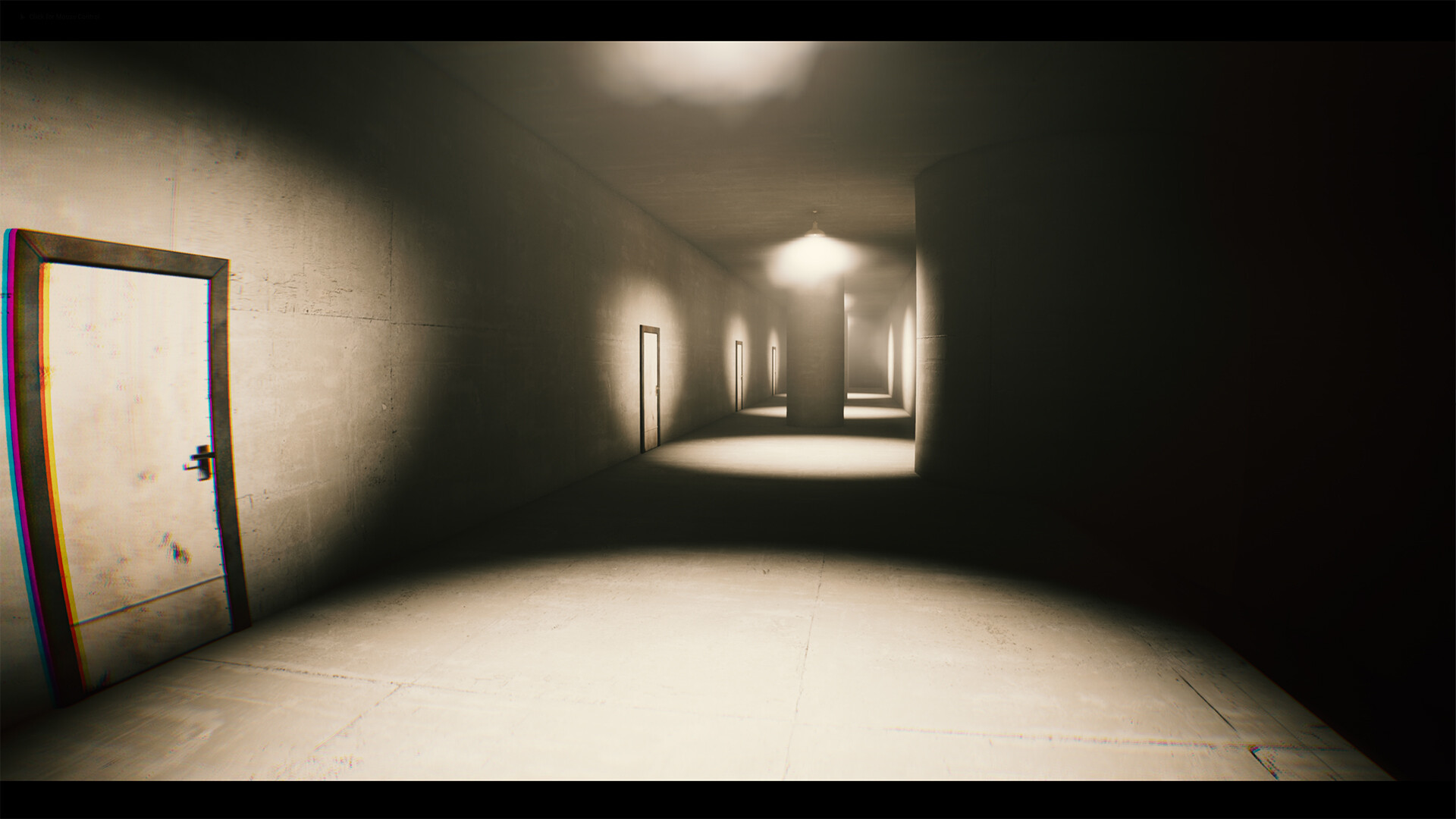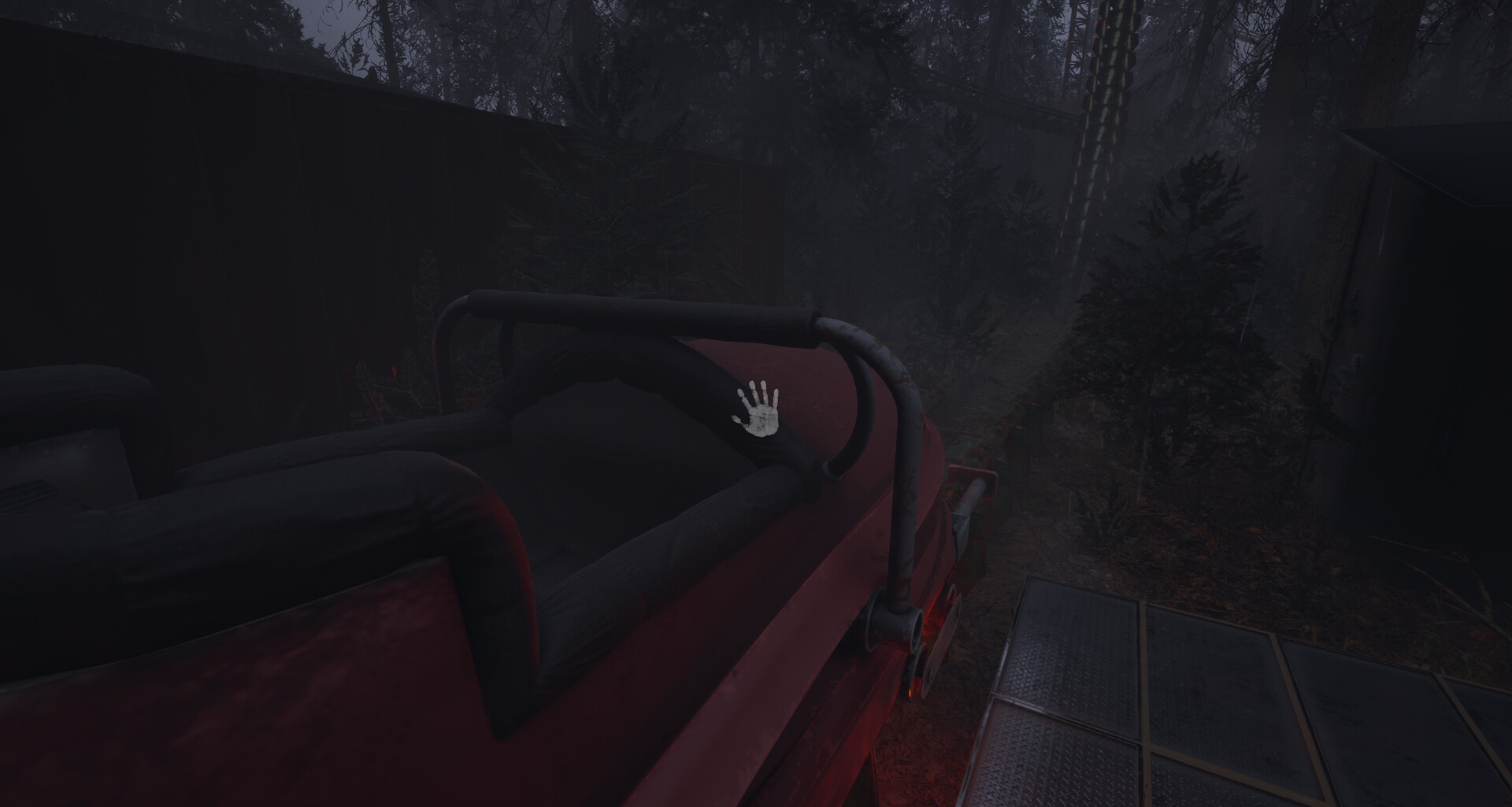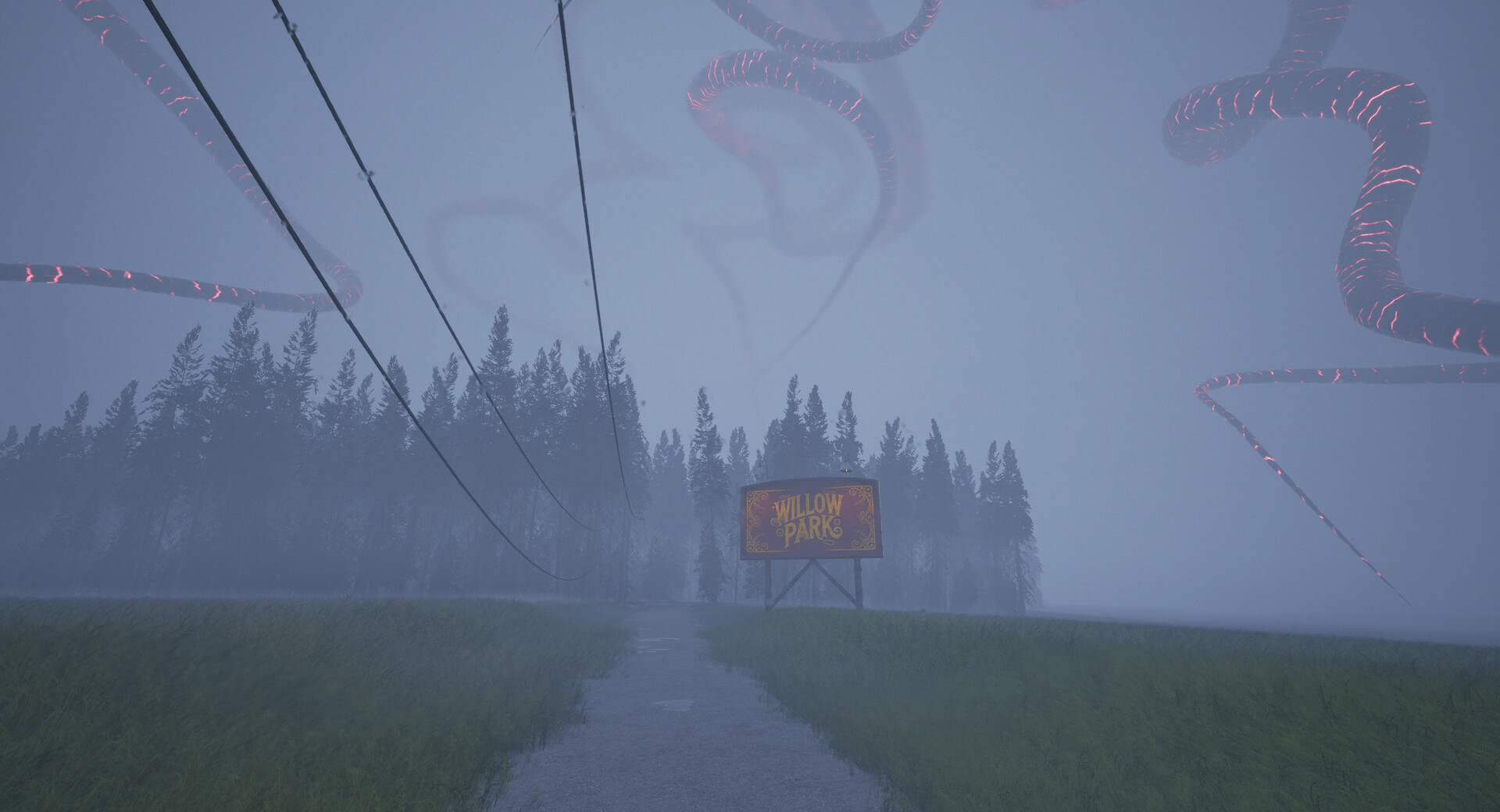On first inspection, you may mistake Emotionless: The Last Ticket for a Silent Hill spin-off. An eerie amusement park lies abandoned, slap-bang between nothingness and nowhere. A fog has enveloped the unnerving landscape of rides and entertainment props, while the threat of something all-together more sinister looms large over the entire sordid area.
What a premise, I said to myself as I walked into the fray, unaware of what was yet to come. I was positive, in that disquieted, psychological horror kind of way. As it turned out, the rest of my 76 minute playthrough was to be as barren and abandoned as the decaying amusement park I ventured into.
Taking The Micket
I’m going to start my review with what I liked most about Emotionless: The Last Ticket. That would be the general atmosphere and diversity of level design. Starting off in the now defunct amusement park, I was awed with run-down, rusting remains of a place usually filled with so much laughter. The emptiness was inescapable, and the sense of place was captured wonderfully.
That then extends to the other areas you’ll traverse deeper into. A disorientating maze of broken mirrors, deceptively long, unending underground tunnels, dreamlike, hellish labyrinths of H.R Geiger architecture. When it came to the inspiration behind these disturbingly tranquil yet hostile spaces, the developers clearly understood how to craft absorbing environments.
If you do play Emotionless: The Last Ticket, I suspect this will be the one area of highlight. The use of liminal spaces works very well in places, as does the confusing, snaking pathways that thread throughout each area. It’s just such a shame that once you stop looking, and start interacting with these levels, things fall apart rather quickly.

Devoid of Emotion
The first, and most immediate problem, is Emotionless: The Last Ticket’s story. The concept is a well-worn psychological horror trope, in that our protagonist, James Anderson, is racked with guilt about his father. Having thrown his entire life into the construction of the amusement park, James’ dear old dad has gone missing, with James returning every year to search for him after being “summoned” by a mysterious voice.
What follows after that is a series of expected plot beats. James’ dad left recordings lamenting their time together, the mystery of the park is somewhat explored, and there’s an other-worldly force at play. In concept, it’s okay, if somewhat rote. Where it really falls down is in the voice acting, which is unfathomably confusing. James goes from deeply invested and intense, to barely sounding like he knows his own dad, nevermind cares about finding him.
While the recordings flesh things out in places, don’t be surprised if you miss more than a couple of them, owing to the labyrinthian level design, which isn’t especially helpful for understanding the narrative. Also isn’t helped that James confuses his own surname at one stage and just generally, the story ends up more predictable than a claw machine stealing your money. The cosmic elements are also vastly under utilised and feel rather superficial too.

Cosmic Horror Bother
When boiled down to its basic tentacled form, Emotionless: The Last Ticket is a walking simulator which emphasises atmosphere and little else. The gameplay consists of running from place to place, searching for the correct path forward. Often, that path is obfuscated from view and can be quite a bother to discover. In one sense, I liked this – it ties into the maddening confusion. On the other, it’s desperately annoying when you get turned around and have to lug yourself long distances.
Two sequences in particular becomes arduous, not because there’s any challenge whatsoever, but because the level design is so unintuitive, prioritising the style and atmosphere above playability. Running back and forth along the same paths is simply never enjoyable, even if it does make the game thematically immersive.
There are no puzzles to solve, no beasties to avoid or outrun, and aside from specific achievement interactions or recordings, nothing else to find in the environment. Emotionless: The Last Ticket is as basic as gameplay can get in a video game. While I don’t mind that in isolation, I’d be lying if I said I didn’t just end up holding sprint and hoping to get to the point as fast as possible. I did nail every duck in the theme park shooting range though, so that was a highlight.

Ticket To Not Ride
Lastly, we need to discuss performance. No, I don’t expect indie games to run perfectly, nor be serene, swan-like graceful times when it comes to FPS. However, Emotionless: The Last Ticket runs about as well as an Olympian with a stack of bricks attached to their ankles. Shuddering and stuttering are ubiquitous throughout the entire game. I had to drop the settings to medium to even get the main menu to actually load the textures of the tentacles.
Bear in mind, my laptop can run Frostpunk 2 like a dream. Transitions between areas are horribly janky and the framerate can barely keep itself above water, even with next to nothing going on. Oh, and don’t even attempt to play this on Steam Deck, as it just flat out doesn’t work. Unless you enjoy your games akin to biting into rock solid ice lollies – nothing but freezing and sliding.
As I said at the top however, Emotionless: The Last Ticket has a compelling premise and a wonderful sense of place. An abandoned, shadowy amusement park will never not be a creepy delight to venture into. I just wish the venturing had more of an actual plot and purpose to its gameplay. It’s Silent Hill, if everything was stripped out but for a couple of buildings and the fog.
EMOTIONLESS: The Last Ticket is available October 7th on PC via Steam (review platform).
Developer: X1 Games
Publisher: X1 Games
Disclaimer: In order to complete this review, we were provided with a promotional copy of the game. For our full review policy, please go here.
If you enjoyed this article or any more of our content, please consider our Patreon.
Make sure to follow Finger Guns on our social channels –Twitter, Facebook, Twitch, Spotify or Apple Podcasts – to keep up to date on our news, reviews and features.

COMMENT
I find it interesting how you criticised the voice acting for sounding uncaring towards the end like isn’t that the point? It’s in the title.